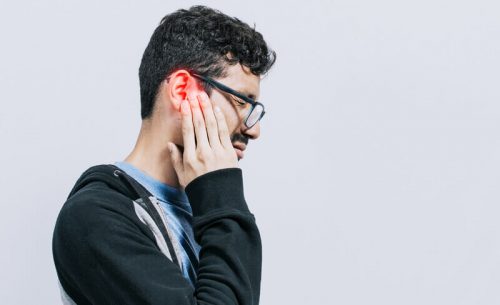How to study with tinnitus: Is It Hard To Concentrate?

[ad_1]
Students having tinnitus often have it tough studying as their colleagues and can almost feel like giving up. However, all isn’t lost since you can ace your studies and be the best of who you always wanted to be.

Tinnitus can bug you and steals your focus and concentration, causing a dip in your academic performance. But don’t despair yet.
Since tinnitus can bother you and hardly gets you concentrating, it helps to calm down all sounds you might hear. That means you should treat the symptoms through relaxation, listening to white noise, and keeping active. You can also try getting used to minimizing its impact to achieve the right headspace that allows you to concentrate.
This article will help you figure out how to study like the rest if you have nagging tinnitus seamlessly.
Does tinnitus affect studying?
Tinnitus can affect studying in some cases, it can be severe and distracting, making it difficult to concentrate or focus on tasks like studying.
If tinnitus causes significant distress or interferes with a person’s ability to study, it can affect their academic performance. People with tinnitus may experience fatigue, irritability, and difficulty sleeping, impacting their ability to study effectively.
Additionally, the stress and anxiety of tinnitus can make it challenging to concentrate on tasks, retain information, and recall what was learned.
However, it’s important to note that not everyone with tinnitus will experience significant negative impacts on their studying or academic performance.
Many people with tinnitus can manage their symptoms and still perform well academically. If tinnitus affects your ability to study, it’s a good idea to talk to your healthcare provider for guidance and support.
What are the Different Tinnitus Types Affecting Students?
While various degrees of tinnitus might affect everyone, students tend to be on the receiving end mostly. This condition can disrupt your studies by stealing your focus and making it a distraction you can barely find your way around. Also read: Does Tinnitus Get Better Over Time?
Some tinnitus types can be mild and more manageable, while others can be crippling and compromising. The various tinnitus degrees you might have to deal with as a student are:
- Subjective Tinnitus
Subjective tinnitus is the most prevalent form affecting individuals of all ages. People having subjective tinnitus usually get the whooshing, ringing, and hissing sounds in the ear, and no one else can hear them. Scientists and medical experts believe that the actual cause of subjective tinnitus might be neuron and nerve damage within the brain.
Students with subjective tinnitus usually have a long way to make it quieter, but it’s possible to keep all the noise down and concentrate.
- Objective Tinnitus
Objective tinnitus can be detected by someone else but to the extent that they must use a stethoscope or listen very closely. This tinnitus condition emanates from mechanical damage to the ear structures like muscle contraction and hypertension. Dealing with objective tinnitus is easier than subjective tinnitus since treating the underlying causes should quickly improve the condition.
- Pulsatile Tinnitus
Pulsatile tinnitus usually occurs in rhythm with the heart’s pulse and can be incredibly sound close to the ear. The sound may have a roaring or rushing quality and can be related to the blood vessel near your auditory system.
A blood vessel disorder like atherosclerosis might narrow the arteries, and idiopathic intracranial hypertension might be why you must endure these conditions. Also read: Can Tinnitus Get Quieter With Time?
How to study with tinnitus?
You can ace your studies if you have tinnitus the same way you would if you didn’t. However, it would help if you calmed it down to help you concentrate or adapt to the nagging, whooshing, roaring, ringing, and hissing in the ear.
Here are a few practical things you can do to help you manage your tinnitus and help you study better.
- Relax
There’s no better trick than relaxing a lot if you have tinnitus. The noise you constantly have to deal with in your ear will always be there to nag you. It can be worse if you hardly give yourself the time to calm down.
Worrying much about the condition can only make you wearier about how tinnitus affects you. Therefore, try to slow down your heart rate and be mindful of your breathing – you’ll start noticing your tinnitus less and less.
- Try Listening to White Noise While Studying
White noise contains all frequencies across the audible sound spectrum at equal distances. This noise is the typical disturbed sound you’d hear but a balanced input sound that masks off other ambient sounds that are loud enough to stimulate your brain.
People with insomnia and sleeping difficulties use white noise to get quality sleep, which is why this trick can be ideal for neutralizing all poking sounds when studying.
- Stay Active
While you cannot be active while studying, staying more vigorous helps you manage your tinnitus and keeps your mind from constantly thinking about it. Your mind needs to be everywhere but focused on you’re the niggling sounds in your head.
Therefore, try indulging in your hobbies or exercise more’ that’ll help you intercept the impact tinnitus might have on your concentration and studies.
- Protect Your Ears But Don’t Overuse Earplugs
You might come into noisy environments during the day, which can interfere with your recovery and keep your tinnitus less bothersome. It helps to carry a pair of earplugs to protect your ears.
However, it would help if you took them off your ears when your surroundings are calm to avoid overusing them. While you don’t have to be in quiet environments always, it helps protect your ears.
- Play a Little Background Music
The internet has all the ideal music variety that helps keep you profoundly focused while studying. These sounds are usually soothing and can help you cancel out the noise in your head due to tinnitus.
Ensure the music is ideal for your ear and studies and doesn’t interrupt much. You can also choose to listen to other sounds apart from your music, as that will come in handy in helping you concentrate.
- Keep Healthy
Studies have identified foods that might trigger or worsen tinnitus, which you should avoid. More specifically, foods containing tons of fat salts and flavor enhancers are detrimental to your tinnitus. Instead, vegetables and other unprocessed foods are helpful.
Should You Take Healthy Food to Manage Tinnitus?
One study identifies fat and starch as having a high association with increasing your risk of having tinnitus. Also, taking lots of processed sugar and flavor enhancers, including MSG and salty meals, all add to the risk.
Instead, taking natural and healthy food should help you manage your tinnitus better. So, you might want to include tons of veggies, fruits, and whole grains to keep the nagging sounds in your head at bay.
All types of vegetables and fruits help you seamlessly manage your tinnitus. Besides, they also add much-needed vitamin doses you might find practical and enriching to your brain. Also, please don’t forget to drink sufficient water and dilate your blood vessels to help you feel better. You can also read here the best supplement for tinnitus.
Should You Take Dietary Supplements to Improve Focus and Concentration?
Dietary supplements that improve your focus and concentration all come in handy. More so, those that support your hearing are much better if they contain all-natural and tested ingredients that help.
These tinnitus supplements can have all the best nutrient packs that all work to improve your focus during study or manage tinnitus and prevent it from nagging you.
But before getting on with that, please be sure to get yourself original products from supplement manufacturers. You should always get these supplements from the official manufacturer for more authentic products than third parties. That should guarantee the ideal results you want to achieve and keep you more uninterruptedly in the books.
Conclusion
You always have a chance at anything and can manage your studies amidst the chaos that tinnitus tags along. Indeed, the ringing, whooshing, and a lot of bizarre sounds can get you less focused and concentrating, which might lead you to give up. The glad tiding is not lost since you can still maximize your study time while keeping tinnitus low. Knowing how to manage your tinnitus can go a long way, and you can ace your studies nonetheless.
[ad_2]
Source link



